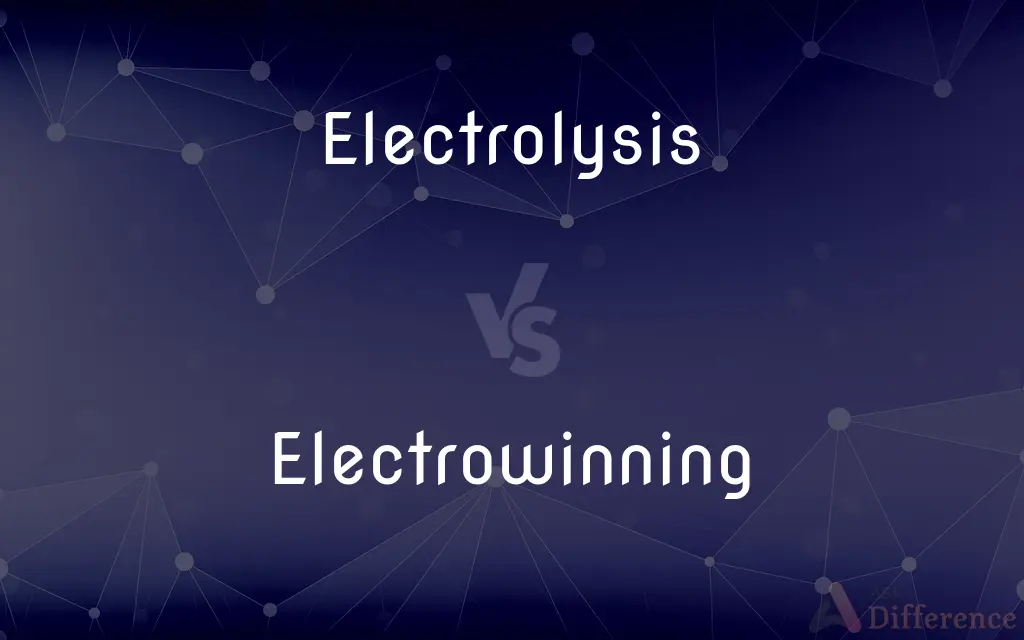Electrolysis vs. Electrowinning — What's the Difference?

Difference Between Electrolysis and Electrowinning
ADVERTISEMENT
Compare with Definitions
Electrolysis
In chemistry and manufacturing, electrolysis is a technique that uses direct electric current (DC) to drive an otherwise non-spontaneous chemical reaction. Electrolysis is commercially important as a stage in the separation of elements from naturally occurring sources such as ores using an electrolytic cell.
Electrowinning
Electrowinning, also called electroextraction, is the electrodeposition of metals from their ores that have been put in solution via a process commonly referred to as leaching. Electrorefining uses a similar process to remove impurities from a metal.
Electrolysis
Chemical change, especially decomposition, produced in an electrolyte by an electric current.
Electrowinning
The electrodeposition of metals from their ores that have been put in solution or liquefied.
Electrolysis
Destruction of living tissue, especially of hair roots, by means of an electric current applied with a needle-shaped electrode.
ADVERTISEMENT
Electrolysis
(chemistry) the chemical change produced by passing an electric current through a conducting solution or a molten salt.
Electrolysis
The destruction of hair roots by means of an electric current.
Electrolysis
The act or process of chemical decomposition, by the action of electricity; as, the electrolysis of silver or nickel for plating; the electrolysis of water.
Electrolysis
Lysis of a bond produced by the passage of an electric current
Electrolysis
Removing superfluous or unwanted hair by passing an electric current through the hair root
Share Your Discovery

Previous Comparison
Douce vs. Douse
Next Comparison
Absolve vs. Dissolve














































